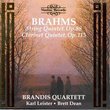| All Artists: Leo Delibes, Gaetano Donizetti, Giuseppe Verdi, Felicien David, Georges Bizet, Heinrich Proch, Nikolai Rimsky-Korsakov, Ambroise Thomas, Charles Gounod, Giulio Setti, Amelita Galli-Curci, Tito Schipa, Angelo Bada, Beniamino Gigli, Louise Homer, Giuseppe de Luca, Ezio Pinza Title: Amelita Galli-Curci Vol.2 Members Wishing: 1 Total Copies: 0 Label: Nimbus Records Original Release Date: 1/1/1993 Re-Release Date: 12/2/1992 Genres: Pop, Classical Styles: Vocal Pop, Opera & Classical Vocal, Historical Periods, Modern, 20th, & 21st Century Number of Discs: 1 SwapaCD Credits: 1 UPCs: 710357785221, 083603785222 |
Search - Leo Delibes, Gaetano Donizetti, Giuseppe Verdi :: Amelita Galli-Curci Vol.2
 | Leo Delibes, Gaetano Donizetti, Giuseppe Verdi Amelita Galli-Curci Vol.2 Genres: Pop, Classical
|
Larger Image |
CD DetailsSimilar CDs |
CD ReviewsNice sampling of the skills of Amelita Galli-Curci Steven A. Peterson | Hershey, PA (Born in Kewanee, IL) | 09/14/2007 (5 out of 5 stars) "The technology of some of the earlier recordings on this CD obscures Galli-Curci's voice somewhat. However, overall, one can tell that she was a splendid singer of her era. Some cuts suffice to illustrate her talents: "Bell Song": This wonderful work from "Lakme" is well sung, albeit in a different style from what we are used to now. This is not a Sutherland-esque coloratura style. Galli-Curci shows well her staccato singing talents. Her voice is quite agile and she floats high notes well here. She does not trill, again reflecting a different sensibility of her time (although compare with Frieda Hempel). "Tacea la notte": This wonderful piece from "Il Trovatore" suggests her range. This is smoothly sung, without affectation. She moves easily from lower to higher notes. Again, a most agile voice. Her final high note is well sung indeed. "D'amor sull'ali rosee": As with the previous piece, well and richly sung. A lovely version. "Chi mi frena?": One of the greatest of ensemble scenes in all of opera. And what a set of six voices is represented here! Galli-Curci, Gigli, Homer, Pinza, de Luca, and Bada. Key question: Can her voice soar above these plus orchestra? The answer? Yes, indeed. Her voice is clearly heard throughout, and soars above the ensemble with a close out high note. The six voices meld well together. "Bella figlia dell'amore": Another all-time great ensemble, with four voices this time: Galli-Curci, Gigli, Homer, de Luca. Once more, Galli-Curci's voice plays well in such an ensemble. Well done. Thus, this CD represents a nice slice of her career--from 1917 through 1930. Her voice is clearly one of the finest in the early part of the 20th century. This is a nice addition to a musical library for those interested in fine singers from an earlier era. " Amazing Just Folks | 03/25/2010 (5 out of 5 stars) "Maybe the best soprano ever, but until these masterly re-recordings came along, there was no way to prove it."
|

 Track Listings (16) - Disc #1
Track Listings (16) - Disc #1
